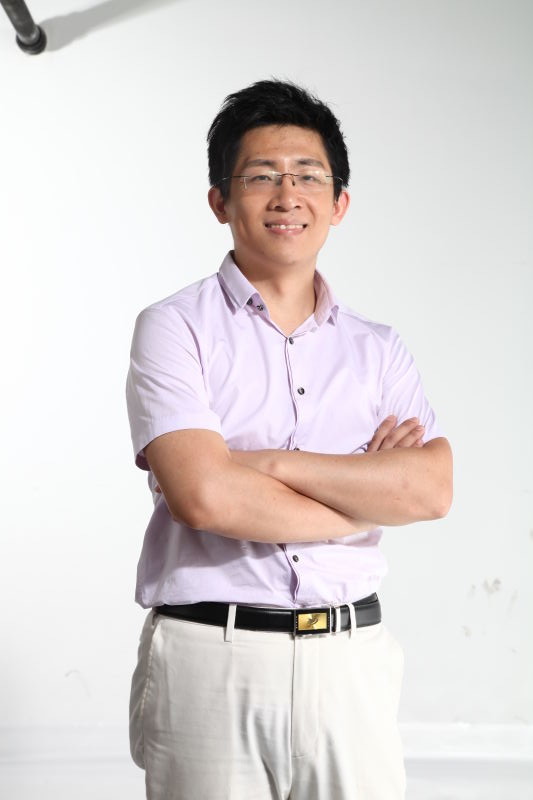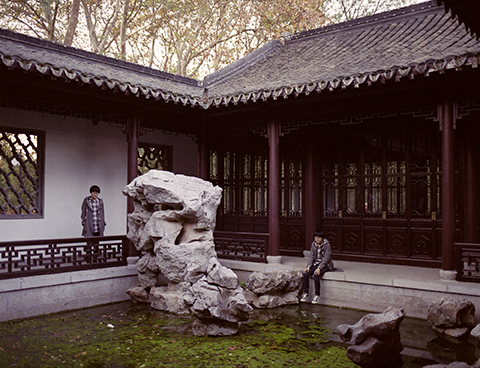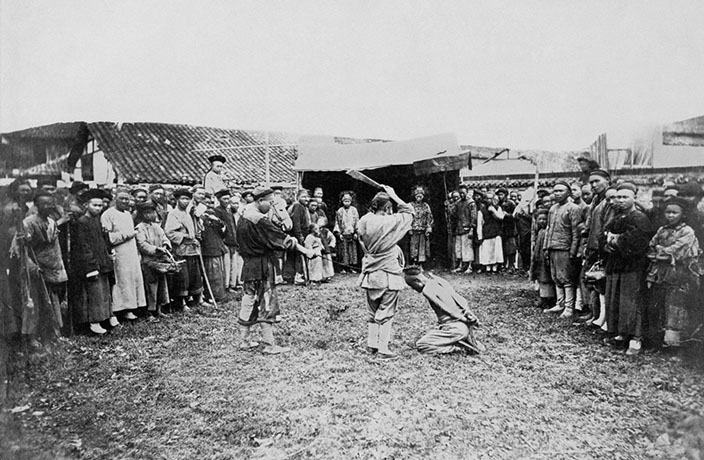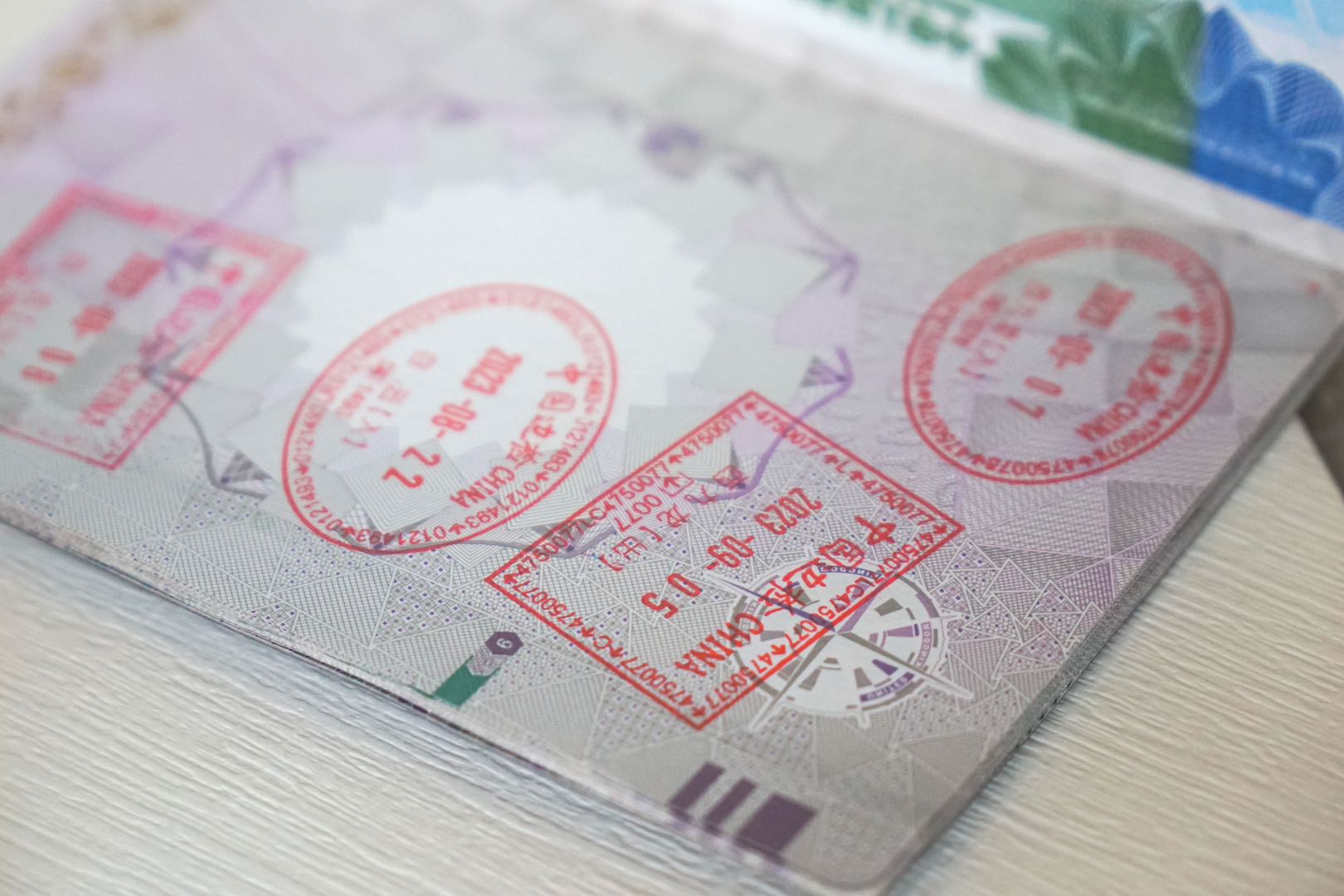The government’s announcement in late October that all couples in China will be allowed to have two children was met with a collective sigh of relief – and, in some cases, skepticism. Because although the one-child policy may soon become a footnote in China’s history, its impact is likely to linger on for generations to come.
While much of the current analysis focuses on the social and demographic effect of the new rules, their consequences will be felt in unexpected ways. We speak to a range of people whose lives were touched by the one-child policy, to find out whether two really will be better than one.
The Doctor
Tian Jishun
Obstetrician and Gynecologist

Dr. Tian Jishun is an obstetrician and gynecologist who has been engaged in clinical practice for nearly 10 years. Since 2011, he has offered a free medical consultancy on Zhihu (a question-and-answer website akin to Quora), and his books are bestsellers in China. He will be speaking at TEDxBeijing Year-End Event about the implications of the two-child policy (event details below).
— In your opinion, what have been the major effects of the one-child policy?
From my own experience, the impact of the one-child policy is mainly that bringing up children is like a ‘luxury’ event. It’s already had a profound effect on young Chinese families.
— How so?
In my parents’ generation, families were made up of many brothers and sisters. So – from what my grandparents have told me – raising children was a very ‘rough’ sort of job. But now in the one-child generation, families pour everything into raising their child and therefore have high expectations.
The result is that some families’ psychological expectations become warped. Since becoming a one-child society, China’s parents have become extremely concerned for their child, and therefore are willing to pay a bigger psychological price.
Over time, the whole nature and structure of parenting has seen big changes. For example, now there are all kinds of training classes teaching parents how to raise a child. There’s also the issue of parents trying to live in school districts that are considered ‘good’ because of the quality of education offered at these schools. So more people want to live in these areas [with the result of increased property prices].
— What have you noticed from your perspective as an obstetrician?
My experience shows that due to families placing high value on only having one child, people tend to overestimate the risks that are associated with the baby’s delivery. Some completely ignore the effects their actions may have when giving birth in the future because there is no intention of having a second child.
Mothers and doctors believe that a cesarean section will lower the risk [to their baby], while they overestimate the risks of vaginal delivery. This has resulted in China having one of the world's highest rates for cesarean sections, at more than 50 percent.
— What’s your opinion about the change to a two-child policy?
Even if the policy is liberalized to two children, Chinese families simply do not have enough capacity in the short-term to have a second child. On the one hand, parents have become accustomed to raising one child and the effort and resources it requires. So after the expenditure required for their first child, parents lack sufficient capacity to raise a second. Raising two children would result in less power.
On the other hand – and from a medical perspective – apart from considering the high cesarean section rate, women who have already had a child and are now able to consider having a second child, are older, their success rate of giving birth is lower and the risks higher. So altogether this reduces their ability to have a second child.
— Will the new policy also place a greater strain on hospitals?
In China there is a serious shortage of obstetricians, midwives and pediatricians. The two-child policy may result in a baby boom. But in the short-term it will be difficult to provide good services without enough medical personnel. So if we risk medical staff shortages, this could further affect the quality of birth population, and maternal health.
There is already a tense doctor-patient relationship in China, and pressure on doctors would increase further. And because medical resources are severely unevenly distributed, this could even further exacerbate such conflicts.
— What suggestions do you have for policy-makers?
I think they need to find ways to solve the medical shortage [as mentioned above]. A while ago, the Planning Commission introduced a national health policy, whereby the exam scores required to train as a pediatric practitioner were reduced in order to attract more medical students. I think this was a bad decision as it enabled the quantity and quality of pediatricians to deteriorate further.
> TEDxBeijing Year-End Event; Sun Jan 17, 2-6pm; RMB150 (presale); Shichahai Theatre, 57 Dianmen Xi Dajie, Xicheng 西城区地安门西大街57号
The Photographer
Fan Shisan, 32
Photographer
Fan Shisan, 32, is an only child who photographed other only children for his ‘Two of Us’ series, an arresting and poignant commentary on the one-child policy. The images (header and below) depict an individual double-posing in a different position, invoking the idea of an alter ego, or a person's search for something – or someone – bigger than themselves.
“I was born in Sichuan province in 1983, five years after the implementation of the family planning policy. My mother is a primary school teacher and my father a public service worker.
I began the ‘Two of Us’ project because I wanted to photograph portraits of only children, and show that their shadows are microcosms of the special nature of the only children of this era. When I started this project, I saw old photos from the period of the Republic of China that had been shot in a similar style. I was very excited, as this was the kind of form I wanted to show in my photos.
As I grow older, it feels more and more like times are changing very fast. The policy was implemented for over 30 years. It seems like a very long time, but in fact, it passed quickly. It’s hard for people to look outside themselves and their surroundings, and to see situations clearly for what they are. In doing this project, I realized everything that I have lost.
The keynote of this project is sorrow and grief. Individuals are still very small. People let the media affect their own way of thinking, deviating away from what is real. It makes me despair. So, I want this project to be a special record.
I didn’t expect the government to change the policy but the situation China currently faces [such as labor shortages] made it inevitable. Only children now have to assume responsibility for problems now arising as a result of past mistakes.
I hope that people will become more independent and find the courage to use their voices.”
The Lonely Child
David, 26
Software Engineer
“I grew up in a rural area outside Wuhan. Most of my classmates were only children because the one-child policy was extremely strict back then [in the 1990s].
Society thinks the 80s generation is spoiled but that’s not a problem for me: my mother didn’t spoil me. My problem is more that I have intimacy issues with people of the same age. I’ve never been in a [romantic] relationship. I think that when you fall in love with someone, it’s like treating somebody like your own blood. But I don’t know how to do this.
My cousin was a second son. He was a ‘hidden child’ of society. He didn’t go to school in the early years [because he didn’t have a hukou]. Finally, his family ‘paid’ the fee to register him. It was a lot of money [back then], like RMB20,000.
He still calls his father ‘Uncle’ because it’s a habit from his youth. For years and years he called his father ‘Uncle’ because they didn’t want other people to know about their second child. If others found out, [the authorities] would come to your home. He wasn’t born in the hospital, because if the government knew, they might try and stop the birth.
Also, another uncle was a teacher, holding quite an important position in our county. His child was a girl but in traditional Chinese society people prefer a son. He faced huge pressure because he could have lost his job if he violated the policy. Eventually he got the money together to have another child and didn’t have to hide his son.
I’m not saying the one-child policy was completely wrong, considering our country’s special situation. But it has caused many problems. A long-lasting effect to consider is families who have lost a single child because of an accident or sickness. Chinese families are much more traditional than in Western societies. Children are almost everything to their parents. When they grow old, their happiness and fulfillment comes mostly from their son or daughter, but if they have lost their only child, they are left miserable.
I have also read about abandoned children. Some families who have had a second child are forced to abandon them, and parents from other countries adopt them. When they grow up, they might want to find their birth parents and discover their original history.
When I was younger I felt lonely, of course, but I wasn’t really aware [of the one-child policy]. Chinese young people are more concerned with studying. But when I got to university, my thoughts began to take shape, and I became more educated.
I think the two-child policy isn’t enough. Parents should be able to have as many kids as they want.”

Header and above: images from Fan Shisan's 'Two of Us' series, capturing the isolation and longing felt by individuals affected by the one-child policy.
The Big Brother
Wei, 34
Publisher
“I’m from a country village in Shaanxi province and the oldest of three siblings. My younger sister and brother all have a hukou but my family was fined a lot for having extra children. My dad even had to get loans from the bank to afford the hukou payment.
Almost all of my family in the countryside has more than one child. People I know who work in the government, or highly educated people, just have one though. It’s because most people are eager for a son and will keep trying until they get one. Having more children is also seen as good fortune of sorts, as they will be more helpful working on the farm.
In terms of the government changing the policy to two children, I think it’s all about expediency. It’s typical of Chinese society, which is that if you do something in an extreme way, there will be an extreme result. Once the population becomes too large, the government will use a method to control it. But once there is a lack of people for labor, the government will use another way. And so on.
I don’t have any children myself but if I have any in the future I would like only one.”
The Ethnic Minority Child
Yue Han, 28
Editor
“My family consists of my mother, father, younger brother and myself. We are from a minority group [Hui] so my parents were allowed another child, despite living in a big city [in Hebei]. Even though the policy has changed to two children, our minority is still only permitted to have two.
The city was very strict about the one-child policy: If you had more than one, you had to leave the workplace because it was likely you would get fired. Back then there weren’t a lot of private companies.
In my elementary school, only two people out of 60 had a sibling. And I was one of them. My friends thought it was weird that my family had two children.
The concept of families used to be that they were large but now the structure has totally changed. Chinese tradition has always preferred having a boy but the policy has changed this thinking. Now, many families only have one girl so it’s become more acceptable. People think girls are more caring and easier to bring up. I’ve heard stories about female infanticide but it’s so far removed from me that I don’t know.
The policy in cities is very strict but I’ve heard a lot of stories about rural places where families have many children. So what does the policy mean? They [the government] just targeted cities, not all of China. I’m not sure what will happen now that the policy has changed because it’s so expensive to afford a baby in the city. I haven’t heard many of my friends or co-workers saying they really want a second child because if they do, it will be very costly. And also, it saps a lot of energy from people. For example, if both parents are busy working to pay for housing and other costs, it’s very difficult.
The policy won’t affect me. Maybe I will go to another country. My fiance isn’t Chinese. We don’t want to have too many children because we both want to work and have our own lives. We can also adopt babies, as there are too many children without families.”
The Expectant Mother
Joyce, 30
Marketing Communications
"I’m a local Beijinger. Growing up, my family consisted of my mother, father and me, and I can’t remember any of my friends having siblings.
My mother was pregnant with another baby, that could have been my sister or brother, but as it was illegal, she had an abortion. It really is a pity.
When I was younger I wanted a brother, but I thought it was okay and that perhaps most people my age were also alone. Now I feel that being an only child is quite inconvenient because my husband and I have four parents to take care of as well as a husky dog and, soon, our own baby, as I am four months pregnant. I feel a little pressure but I'm lucky that my parents are pretty healthy.
I would like a girl because it may be less difficult financially. Chinese tradition dictates that parents will give their son a house when they marry, and most girls agree that a successful proposal depends on whether their boyfriend have a house.
Overall, my husband and I expect to have two children but it depends on our financial situation. Having two kids must be better [than just one] and many women I know are already pregnant with their second child. In fact, I would love to have more than two children if everything is okay: a big family with a big dog in a big house – how wonderful it would be!
I think the one-child policy did control the population but it shouldn’t have been applied to just Beijing [and other urban areas]. Families in other places had lots of children, and then moved to the city for better opportunities. This caused overcrowded cities and barren countryside. There’s an imbalance where there are huge numbers of older people without any children, and fewer young people, who are important for building our country.
I’m afraid that the population will grow too fast under the new policy and that facilities will be unable to handle the growth. For example, schools may be unable to provide a good education for everyone, plus it will be more expensive to have an apartment in the city.
Sometimes I think it’s so funny that the government tells us how many children we can have. I hope that in the future it will let women and families decide how many children they want. But this may not happen.”



















0 User Comments